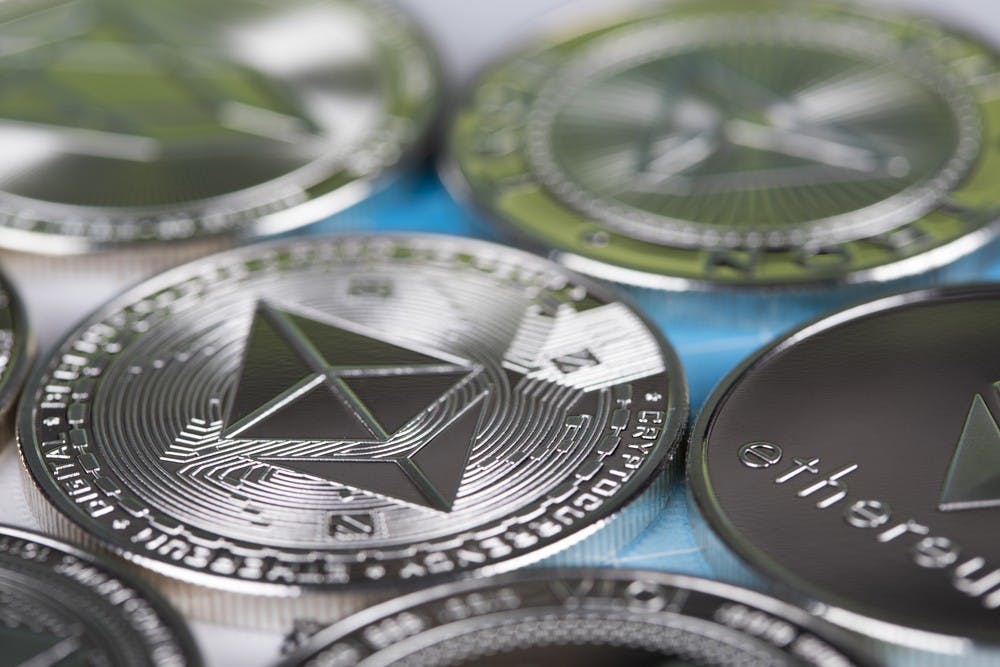The long-awaited ethereum (ETH) merge finally happened during the wee hours of the morning on September 15, 2022. What had been years in the making took place without a hitch. The smooth transition of the world's second-biggest cryptocurrency into a total POS (proof of stake) platform stands as one of the major events in the market's history. There are plenty of lingering questions about what happened.
What does it mean to merge older technologies into a new one, switch to proof of stake, and upgrade a cryptocurrency? Is ether's move based on a wise decision or an overly risky one? What will happen to the price of ether, bitcoin (BTC), and all the other major crypto as a result? Here's a brief look at some of the most pertinent information surrounding the ether merge of 2022.
What the Merge is All About
The merge was an upgrade of the entire ETH blockchain and will change how people will buy, sell, and hold the coin. For those just getting started in investing, the old model of the crypto was called POW, or proof of work, which among other things, is very energy intensive and involves computer nodes that compete against each other to mine new blocks on the chain. Ethereum transitioned to a POS model that uses far less energy and gives nodes the opportunity to mine based on the stake they already own, not on the work they do. If all goes well with the merge and ETH holds or improves its value during the next months and years, the POS model could catch on with new and existing ones. That would be a massive shift in the way the blockchain operates and would likely mean a more efficient cryptocurrency ecosystem.
A Rising Tide for All Ships?
Many already trade the cryptocurrency index, a group that tracks the overall segment's ups and downs. Much the same way investors buy the Dow or S&P 500 indices, many speculate on the overall direction of the crypto marketplace, in which ETH, BTC, and many other cryptocurrencies play a part. So far, ETH has not experienced a price rise as a result of the merge, but the news could attract investors to the niche if they feel it brings added stability to the digital currency sector. It's interesting to note that both bitcoin and ethereum are down about 50% for the year, and the securities bear market has not helped. But cryptos have swung by a lot in both directions during the past few years, so investors and traders will be paying close attention to price changes during Q4 of 2022 and during the first months of next year.
The Proof of Work, Proof of Stake Debate
What's the non-technical explanation of the difference between proof-of-stake and proof-of-work platforms? POS uses much less energy and is thought to be better for the environment. It's the newer of the two systems and could transform the entire segment if the ETH merging goes well. POW coins, like bitcoin, consume energy during the mining process. Plus, many POW currencies offer users and owners nothing more than a store of value, a money-like asset. On the other hand, POS versions, like ETH, are agile assets that can do things like streamline the e-contract process, support a stronger blockchain, etc.
Bitcoin
What if the ether merge turns out to be a stunning success, with no glitches or other kinds of technical problems? One school of thought is that bitcoin and most other major crypto would benefit because the move would show how resilient and adaptable the entire sector is. The current level of fear, which causes huge selloffs in the early part of 2022, could turn around. The bottom line is if you add to your portfolio and the powers that be end up merging ETH into a total POS asset, all the players in the alternative currency market win.
Stock Market Effects on Crypto Prices
What is the SME or stock market effect? In the world of cryptocurrency, it is a supposed phenomenon in which a bear market for equities causes assets like bitcoin and ethereum to drop even further. While there's no direct, irrefutable evidence that the SME is valid, the reasoning behind it makes sense. The gist of the idea is that when stocks are tanking, retail investors get spooked and sell some or all of their shareholdings to prevent financial disaster. But because the sector is even more volatile and unpredictable than corporate shares, people yank their cryptocoin account balances first. So, if you believe in the SME, the next few months could be a challenging time for holders and investors, but not for those who choose to short things like ethereum and bitcoin via CFDs (contracts for difference).





The Daily News welcomes thoughtful discussion on all of our stories, but please keep comments civil and on-topic. Read our full guidelines here.